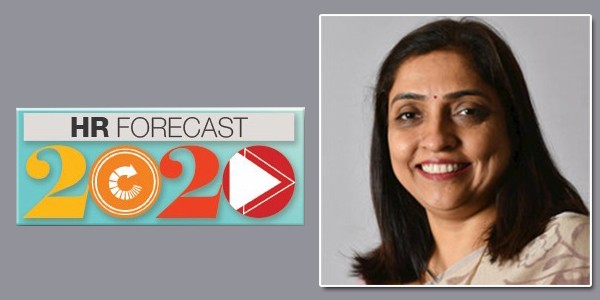Technology, data, employee experience: What’s high on agenda
In today’s competitive markets, human capital can be the biggest differentiator, and hence, attracting and retaining the ‘Best-in-Class’ talent is an important part of the people agenda. ‘Best-in-Class’ talent gets energised and connected through ‘Best-in-Class’ experience. This can be achieved through technology and niche experiences .We live in an era of continuous innovation and change, and this is no different for HR. Business today, is clearly all about people, meaning that processes and practices should be directed at enhancing the employee experience. HR analytics and new technologies should focus on the employees. How HR attracts, retains, and energises a diverse and skilled workforce will shape the organisations in 2020.
The biggest challenge for HR in your sector
The role of HR is becoming challenging and strategic in the insurance industry. The marketing, regulatory and technological environments, within which the insurance industry functions, are evolving continuously. With these internal and external demands, HR in the insurance industry needs to pre-empt the changes and build suitable models and strategies to lead this change. HR needs to be receptive to the constantly changing market conditions in the industry and ensure the growth, development, satisfaction and retention of the workforce. In this fast growing and demanding industry, it is also important for HR to create an agenda around people development, coaching and building an internal leadership pipeline.
The next CHRO – the learning officer, the talent officer, the HRBP or the engagement officer
CHRO candidates are being hauled from various arenas of a company. The skills that CHROs require are more to do with managing the programmes that influence a company’s total workforce. Leading the people’s agenda of an organisation requires holistic understanding of business and the HR function. But more importantly, the HR leader should be seen as a fair leader, who can lead change, has the ability to build effective talent strategies aligned to business objectives, and can influence and coach leaders to drive the people agenda.
Rising employee benefits cost
To recruit and retain top talent, employers are enhancing employee benefits because balancing costs against the potential value to the organisation is becoming more complex. However, it is important to evaluate the return on investments, by accounting for a holistic impact of these benefits on productivity and retention of employees. To build human capital, it is important for organisations to be competitive in people practices and benefits. It is critical to create an enabling and supporting environment, which offers peace of mind to the employees. At the same time, HR must ensure that the cost of these benefits is optimised through various initiatives.
HR as the ethics keeper
The vision of HR in 2020 will be both digital and human. Human resource leaders are now focussing on optimising the permutation of human and automated work. This is creating a new dimension for HR—one which entails leaders and teams to develop an ease in Artificial Intelligence (AI), while they redesign HR to be more personal, human, intuitive and ethical. It will be the HR’s responsibility to ensure that robust structures and practices are put in place to ensure the security of data and avoid its misuse. There should be practices to ensure the right to privacy of the employees.
(This article first appeared in HRKatha print magazine)



